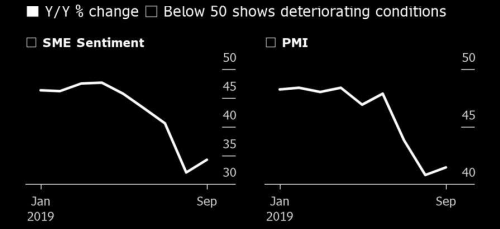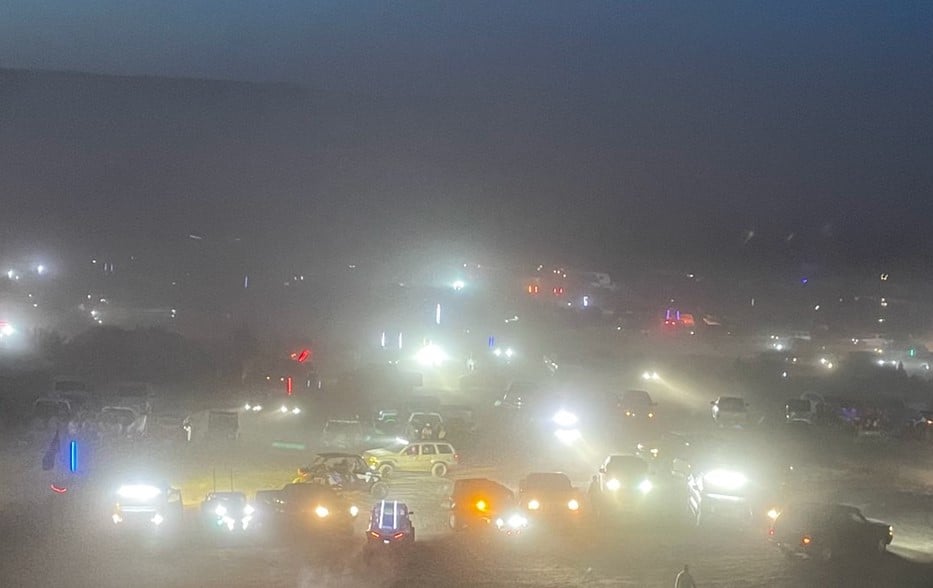Activists say the human rights movement is failing – “Back in the day, human rights groups were ahead of the curve. But autocratic regimes have learned from that. They’re investing in their tactics, and they’re coordinating.”

By Nahal Toosi
18 June 2023
OSLO, Norway (POLITICO) – Gatherings of human rights activists tend to feature commitments to the cause mixed with a lot of gallows humor — after all, many such advocates have survived and persisted in their roles despite imprisonment, torture and surveillance by authoritarian regimes.
But on a sunlit June night in this Nordic capital, at the annual Oslo Freedom Forum last week, it was hard to avoid a more pessimistic tone.
Dissidents and human rights campaigners led toasts and implored each other to keep the faith in their quest to end tyranny. They admitted, however, that they were running short on hope amid the rise of increasingly nimble, tech-savvy adversaries.
“The state of the modern human rights movement is rather dire,” said Ramy Yaacoub, who works on Middle East issues for the Open Society Foundations, a grant-making network founded by liberal billionaire financier George Soros. “Back in the day, human rights groups were ahead of the curve. But autocratic regimes have learned from that. They’re investing in their tactics, and they’re coordinating.”
Conversations with more than a dozen attendees last week suggest that a global movement that flowered post-World War II, and saw major victories amid the fall of the Soviet Union, now sees itself at a crossroads.
If activists fail to find new methods, they say, dictators are likely to grow even more emboldened.
For Yaacoub and 1,400 others gathered at the forum, the last 15 years have been marked by far more failures than successes. Even what seemed like initial victories often morphed into losses. Just a few years ago, for instance, democracy campaigners in Sudan celebrated the ouster of a dictator; today, military leaders who took advantage of that moment have plunged the country back into war.
“We can’t even point to Tunisia anymore,” bemoaned Andrea Prasow, executive director of The Freedom Initiative, referring to the north African country’s return to autocracy after years of being the sole democratic success of the Arab Spring.
Prasow said she’s having a harder time convincing funders to support the work of her organization, which focuses heavily on freeing political prisoners, as positive results feel too few and far between. “It’s a long game,” she tries to explain to them.
The advocates have no intention of abandoning their collective and individual fights. But the conversation here in Oslo centered on the need to rethink the human rights movement’s actions and tools at a moment when autocracy has gained strength worldwide and technology offers both promise and peril. They know that while autocratic regimes are refining their methods, the countries that say they support human rights, such as the United States, can be unreliable when their own interests are at stake.

Sanaa Seif has learned from bitter experience. More than a decade ago, she joined groups who successfully called for the overthrow of Egyptian dictator Hosni Mubarak. But the Arab country is now under the arguably more brutal dictatorship of Abdel Fattah el-Sisi, the recipient of billions worth of U.S. security aid. Seif’s brother, Alaa Abd El-Fattah, is a political prisoner there.
“I started with a very powerful moment. Since then, it’s been defeat and degradation,” Seif said. “Now, I really believe we should dream big, but we should be very pragmatic about our expectations.”
There’s no solid way to quantify the reasons for the activists’ frustration; no single data set captures every win or loss in a field that draws everyone from advocates for political prisoners to those crafting anti-corruption laws.
One frequently cited source is Freedom House’s “worldwide freedom index,” a measure of democracy’s strength. It has been on a downward slide for 17 years.
Other data sets are fragmented at best, so rights activists are left with anecdotes. Those are usually depressing: Afghanistan is back under control of the Taliban, meaning women and girls’ rights are severely curtailed; Iran’s Islamist regime has largely snuffed out a protest movement over the past year, partly by ramping up executions; and many voices say democracy in the United States, still a beacon of hope for this crowd, faces danger, amid moments like the Jan. 6, 2021, insurrection at the U.S. Capitol.
Many human rights activists applaud the United States and its European and Asian allies for supporting Ukraine as it tries to repel Russia’s invasion, a major topic at this year’s forum.
But some said that the war has become an excuse for Western leaders to go easy on abusive governments elsewhere in the world.
Azerbaijan’s strongman, Ilham Aliyev, should face far more economic sanctions from the United States and other governments, argued Leyla Yunus, a one-time political prisoner from the country. But, because Russia’s war on Ukraine has hurt energy markets, the “West needs Azerbaijan’s oil and gas, and our dictator enjoys it,” Yunus said.

The State Department declined to comment on U.S. policy toward Azerbaijan or other specific cases cited in this story. And in the case of Azerbaijan, any U.S. desire to penalize the country has been further complicated by recent diplomatic efforts to resolve a long-running conflict between Azerbaijan and Armenia.
A State Department spokesperson, however, referred POLITICO to a recent comment from Secretary of State Antony Blinken on the issue more broadly. “Human rights are always on the agenda for the United States. It’s who we are,” Blinken said.
Such claims do not assuage rights activists. Democracies always put their own domestic “economics before human rights,” said Victor Navarro, a journalist and former Venezuelan political prisoner who was at the conference.
In the United States, President Joe Biden is hosting Indian Prime Minister Narendra Modi next week for a state dinner, despite growing concerns about the Modi government’s autocratic actions and persecution of Muslims. In the past, U.S. officials have stressed that they talk to India privately about human rights issues, but they also consider it a critical partner in the U.S. rivalry with China.
In recent years, scholars and practitioners have increasingly questioned whether the modern human rights movement is succeeding.
Some argue that the “name and shame” tactic so often used by rights groups doesn’t sway autocrats the way it might have in the past. They just don’t seem to care that much about how they are viewed.
Scholar Jack Snyder argued in a 2022 essay for Foreign Affairs that some strongmen have successfully cast promotion of human rights as the work of elitist, out-of-touch “bullies who push alien agendas to replace popular national self-determination.” (He included in the group former U.S. President Donald Trump, who praised many dictators and is seeking a second term.)
The solutions proposed by academics and activists range from focusing more on economic fairness and inequality issues to greater cross-border collaboration among rights organizations.

At the Oslo conference, activists were also increasingly focused on the potential of using new technology to help their causes. Some are sending cryptocurrency to dissidents in authoritarian countries as a means of supplementing their resources.
But tyrants have also learned to use technology to surveil, outwit and further oppress their populations. And authoritarian regimes are collaborating with each other on the tech front — regimes in the Middle East are now using Chinese surveillance tools. Iran and Venezuela have signed a series of cooperation agreements on science, technology and beyond in part to defy U.S. sanctions on both countries. The arrival of powerful new versions of artificial intelligence is only adding to rights activists’ worries.
Dictators also have learned to put a veneer of legality and respectability over their actions, dissidents note. More autocrats know not to win so-called elections by 99 percent anymore, but a more reasonable figure that comes even after plenty of manipulation.
The activists in Norway could not think of many successes in recent years. Some pointed to growing awareness of far-right extremism, the release of some political prisoners (though that’s often accompanied by new arrests) and efforts by social media companies to prevent online radicalization.
And they stressed that raising awareness of rights abuses still matters. The Chinese crackdown on Uyghur Muslims would be even more severe were it not from the global outrage directed at Beijing, said Gulbahar Haitiwaji, a Uyghur previously detained in one of China’s internment camps.
“The criticism didn’t free everyone, but it did help some people regain their freedom,” she said. [more]


